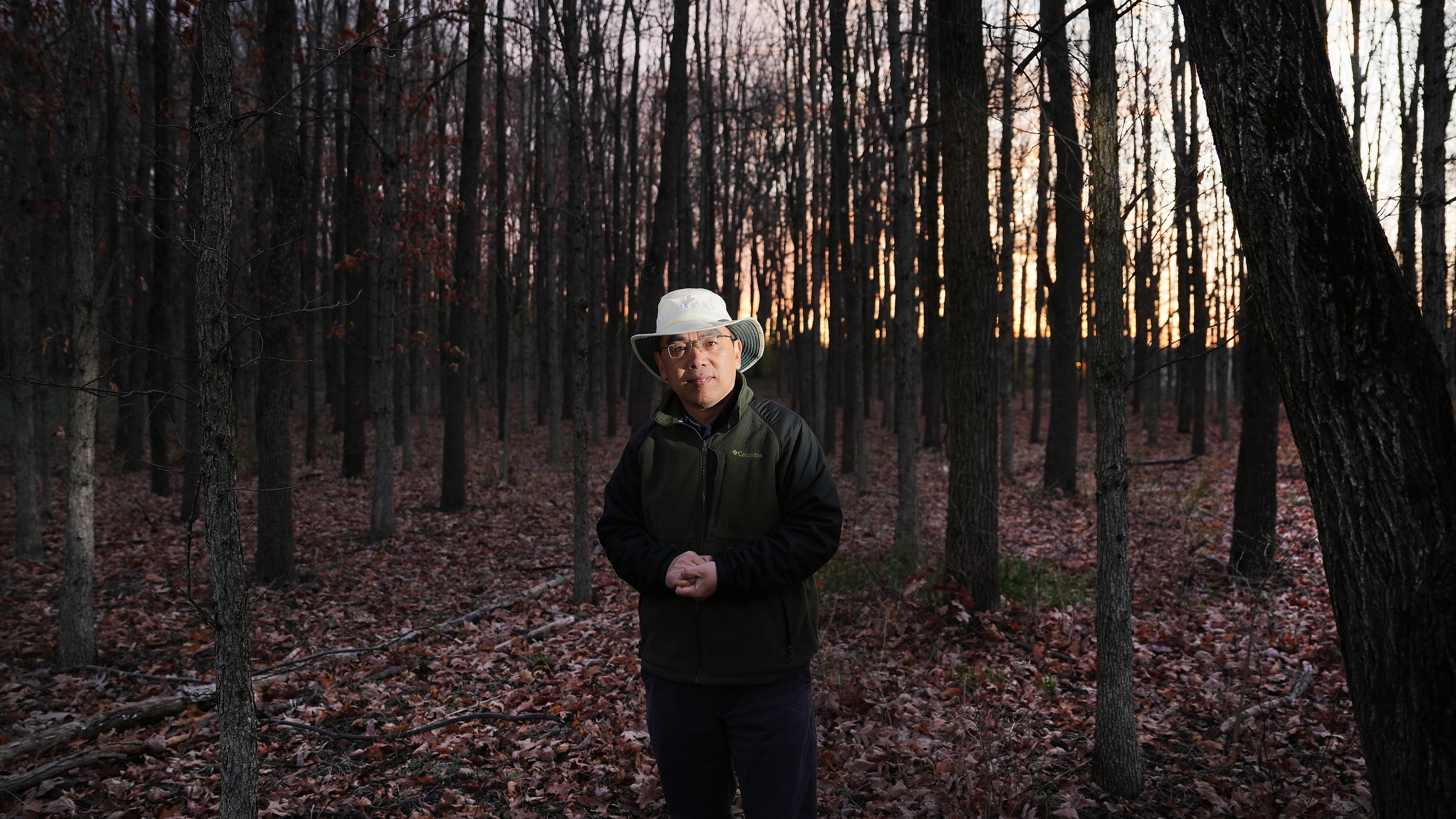The Society of American Foresters honors Purdue professor with Award in Forest Science
The Society of American Foresters (SAF) annually recognizes individuals for their outstanding achievements and significant contributions to forestry and natural resources. This year, Songlin Fei, director of Purdue University’s Institute for Digital Forestry and Dean’s Chair in Remote Sensing in the Department of Forestry and Natural Resources, was selected as the recipient for the SAF Award in Forest Science. This accolade acknowledges his exceptional research productivity and quality, innovation and impact, as well as exemplary leadership skills.
Songlin Fei has a truly outstanding record of accomplishment in forest research that exemplifies the best that we seek in the forestry and natural resources field. His sustained contributions to the forest sciences and to training the next generation of scientists have made substantial advances in the field.”
- Bernie Engel, the Glenn W. Sample Dean of Agriculture
SAF is dedicated to advancing forest management through science, education and technology while promoting professional excellence and the health and sustainable use of forests. With over 10,000 members, SAF unites forestry and natural resources experts to share the latest industry advancements.
Fei is renowned for his expertise in macrosystem invasion ecology, forest ecology, and geospatial tool development and application. His research has significantly advanced the ecology and management of invasive species, deepened the understanding of forest responses to climate change, and propelled forestry into the digital age. Fei excels in conducting interdisciplinary research and making innovative discoveries that tackle applied natural resources challenges.
It’s great to see that SAF appreciates the digital forestry research I’ve been working on. The award is not only a confirmation to my work, but also an encouragement for the interdisciplinary collaborations and innovations that are needed to address various global challenges our forests are facing.”
- Songlin Fei
Through his faculty position at Purdue, Fei aims to maximize the social, economic and ecological benefits of urban and rural forests, recognizing that educating the next generation of students is pivotal for global sustainability.
Collaborating with Purdue colleagues in forestry and natural resources, engineering, computer science, and computer and information technology, Fei and his colleagues developed the nation’s first digital forestry minor program, and they are also creating a digital forestry professional master’s program to integrate cutting-edge technologies into the workforce. Fei’s team has digitally mapped the distribution and severity of invasive plants and pests in U.S. forests and advanced AI-assisted tree inventory using remote sensing data, allowing for the rapid and accurate mapping of large areas.
Fei’s research on forest resilience to climate change has provided valuable management practices and risk assessment for key stakeholders, including landowners, foresters and government agencies. His contributions, which hold significant ecological importance, have been widely recognized and published in highly regarded scientific publications such as Nature, PNAS and SAF’s Journal of Forestry. Fei’s research was also recognized as one of the top 100 scientific stories of 2017 by Discover Magazine, and in 2019, he received the W.S. Cooper Award from the Ecology Society of America for his work in forest ecology. In 2020, Fei was honored with the College of Agriculture’s Ag Research Award. He was recently elected as a fellow by the American Association for the Advancement of Science.
Throughout his career, Fei has:
- Published over 150 peer-reviewed articles
- Secured more than $54 million in research funding, most of which is from federal competitive grants, including from the National Science Foundation and the USDA National Institute of Food and Agriculture
- Successfully mentored 12 postdoctoral scholars and 21 graduate students and currently serves as the major advisor for three postdoctoral scholars and four graduate students
Looking ahead, Fei strives to comprehend large-scale ecological patterns, processes, and associated ecosystem functions and services through the development of comprehensive tools in modeling, geographic information systems and remote sensing.
This award makes me more committed to my interdisciplinary work. We will continue to bring data-driven, AI-supported and socially responsible solutions for the sustainability and resilience of our forest ecosystems.”
- Songlin Fei







